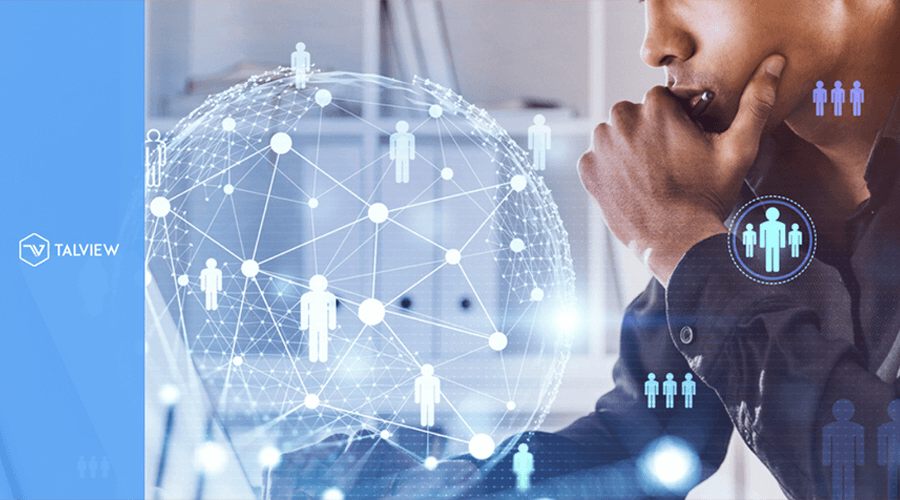While the November 30 opinion article in the Financial Times, AI is making applying for jobs even more miserable, is well-intentioned and raises some valid points, it falls short of presenting all of the facts and paints an unduly negative and dehumanizing picture of AI-based asynchronous video employment interviews.
Asynchronous (or pre-recorded) video interviews are a powerful tool that can be used by large employers to narrow the funnel of job applicants to a smaller, more manageable pool. In fact, without the use of such tools, thousands of job seekers would never even get an opportunity to be considered for a role in these organizations simply due to lack of recruiter/interviewer manpower to reach out to them. Instead, candidates would be sorted by self-reported qualifications, etc., and only a small number would be chosen for interviews.
It’s important to understand that the interview process is ultimately an assessment that can aid in the decision-making process. A common misconception regarding these video interviews is that they are evaluating job-fit based on facial features, expressions, tone, etc. This is untrue. Rather the AI process simply rates the content of the candidates’ responses with regards to job-related competencies using valid rating criteria that are pre-determined by the employer. In these applications, the AI is looking for content – nothing else. This is a very fair and objective process.
The article also mentions the debate about whether algorithms can reinforce human biases rather than eliminate them. This also, is taken out of context. While there is still work to do to improve features like facial recognition in some AI applications; that is not a factor in the interview rating. AI-based video-based interviews can, and do, remove unconscious human rater biases. Consider some typical interviewer biases:
- Confirmation Error/Bias - The tendency of people to favor information that confirms their existing beliefs or hypotheses.
- Halo Error - When a rater’s overall positive or negative impression of an individual leads to rating him or her the same across all rating dimensions.
- Leniency/Severity Errors - When a rater's tendency is to rate all candidates at the positive end of the scale (leniency) or at the low end of the scale (severity).
- Central Tendency Error - A rater's tendency to avoid making “extreme” judgments of candidates resulting in all ratings falling in the middle range of a scale.
- Similar-to-Me Error - When the rater’s tendency is biased toward those candidates seen as similar to the raters themselves.
All of these errors are considered unconscious human biases that can negatively affect a qualified job-seeker. A machine, on the other hand, does not have unconscious biases such as these and is ultimately a better tool for this process. Further, since far fewer follow-up, face-to-face interviews are required after this step; they can be conducted by a smaller set of individuals that are more adept and better trained to conduct the remaining, more focused and detailed interviews. Rather than dehumanizing the interview – video interviews can indeed humanize the experience, allowing truly qualified candidates to move on in the hiring process.
Interviewing is stressful and fraught with uncertainty because one is making a decision about the candidate’s future job performance based on a single interaction. This is where some of the biases mentioned above can creep into the process. These unconscious biases make rating seem more consistent with the interviewer’s internal set of beliefs and thus, more certain and less stressful. However, if the interviewer can first be provided with a set of unbiased and definitive insights like strength on required competencies assessed in the Asynchronous interview, then the face-to-face interviewing process becomes so much more humane and meaningful.
In this case, the interviewer needs to only focus on validating the insights rather than discovering the candidate from scratch. AI-based insights make the decision-making process simpler, quicker, and more enjoyable for both candidate and the interviewer. The key takeaways from an AI based process is that scale helps more candidates to be considered for the same job and lesser number of face-to-face interviews allows the interviewing process to be less stressful.
And that is the heart of our mission here at Talview – to provide every individual with an equal opportunity to achieve their best career. “We see this an opportunity for us bring in a change in the way which we do talent measurement and talent evaluation and make it a lot more accessible for people who have these barriers,” explained Sanjoe Tom Jose, CEO and Co-founder of Talview during his keynote at our recent customer event. “Right now, the industry is at an inflection point where we can reimagine how talent acquisition and management are done, humanize the process to be more accessible and sensitive to all talent, and democratize the process by limiting bias as much as possible during the decision-making process.”
On a recent webinar (Harmonizing High Tech and High Touch in Talent Acquisition), Laura Mills, AVP HR, Cognizant, highlighted the importance of candidate centricity during the process. She explained, “We’ve been focused on ensuring that we don’t just enable a high-tech recruiting experience, but also a candidate experience where the candidates can experience our culture, who we are, what we do, and more.” In the end, for Mills, this is about “automation without alienation.”
Certainly it may be uncomfortable for some candidates to get used to this new technology. Nevertheless, this technology is here to stay and provides an efficient and effective solution for large employers who wish to allow all candidates a chance to compete for available positions. It's important to recognize that AI is not a decision maker...the human is....AI just makes the decision process smarter, efficient, and focused.
This response was written by:
 |
 |
| Dr. Fred Rafilson, Chief I/O Psychologist, Talview |
Rajeev Menon, Strategic Advisor, Talview, & eAssessment Association Board Member |







Leave a Reply